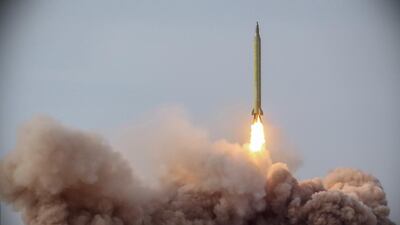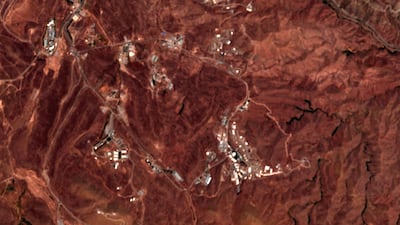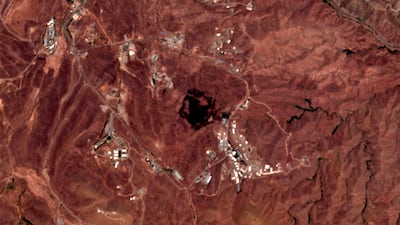Iran and North Korea are defying global rules on nuclear technology and missile systems, Nato’s Secretary General has said.
Jens Stoltenberg added that the alliance should be “clear eyed” about the challenges ahead.
He also singled out China and Russia, criticising Beijing for rapidly building its nuclear systems and its lack of transparency.

“There are also other players fielding nuclear weapons and advanced missile systems. North Korea and Iran, for example, are blatantly ignoring or breaking the global rules and spreading dangerous technology," he said.
Addressing a Nato conference on arms control and weapons of mass destruction, Mr Stoltenberg said “the world is rapidly becoming more unpredictable, more competitive and more dangerous”.
He also defended the role of Nato in Afghanistan, after its nearly two decades long mission drew to a close last month.
The alliance and its future has been called into question after the rapid takeover of Afghanistan by the Taliban, and the chaotic evacuation efforts from the country that led to many of those who worked with Nato forces being left behind in great danger.
“Our task now is to preserve the gains in the fight against terrorism, and remain vigilant. We must also do our utmost to ensure that Afghans at risk, who wish to leave, are given safe passage. We will continue to prioritise this effort, working with allies and partners,” Mr Stoltenberg said.
“The crisis in Afghanistan does not change the fundamental need for Europe and North America to continue to stand strong together in Nato. Our unity is crucial to tackle the rising challenges in a more competitive world, including to deal with arms control disarmament and non- proliferation. We are determined to continue to play our part.”
EU discussions on setting up its own rapid reaction force have gathered pace during and after the withdrawal from Afghanistan, which laid bare the reliance on the US military.
But Mr Stoltenberg warned on Sunday against such efforts in an interview with the Telegraph.
“Any attempt to establish parallel structures, duplicate the command structure, that will weaken our joint capability to work together, because with scarce resources we need to prevent duplication and overlapping efforts,” he said.




